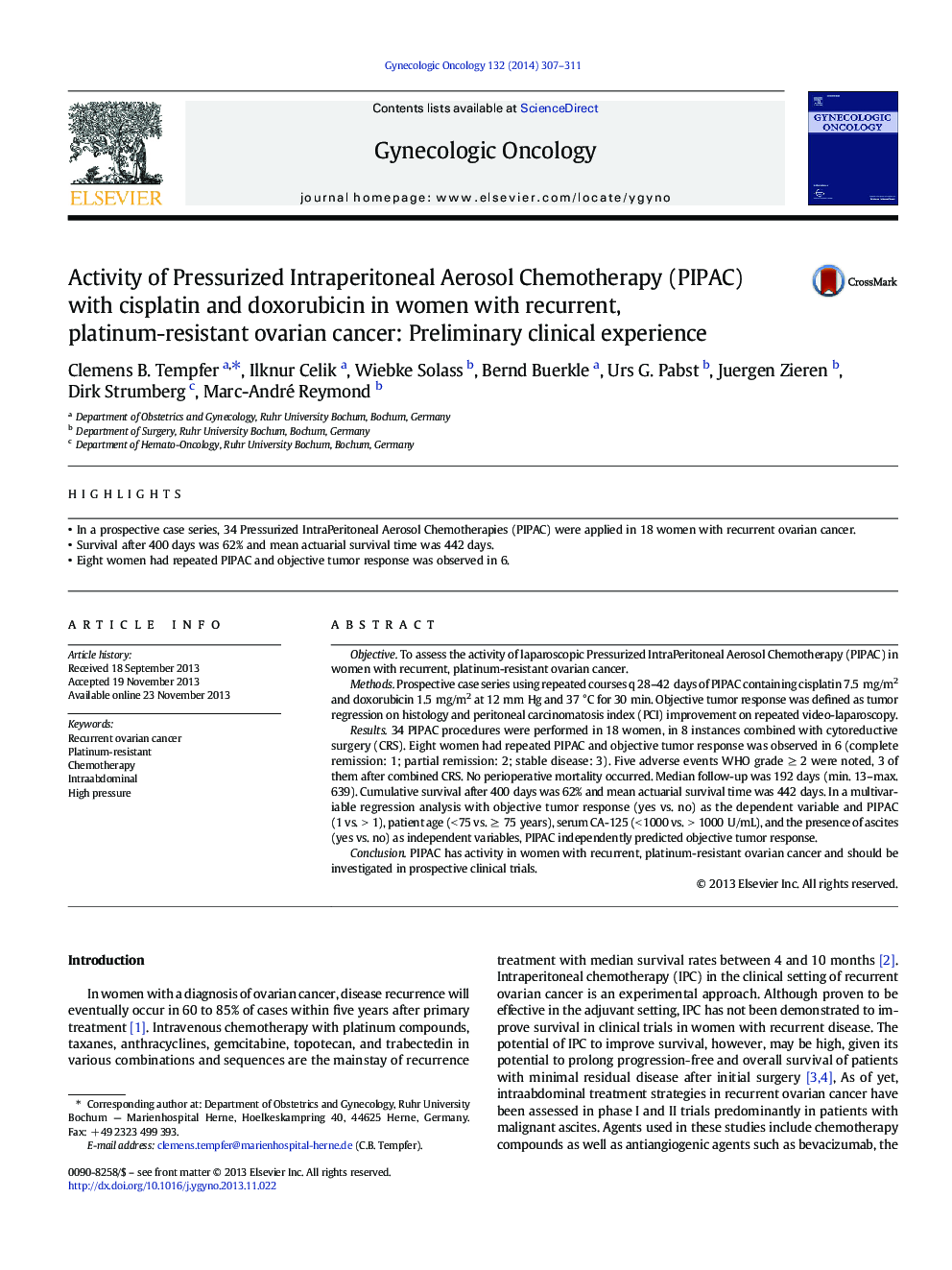| Article ID | Journal | Published Year | Pages | File Type |
|---|---|---|---|---|
| 6183551 | Gynecologic Oncology | 2014 | 5 Pages |
â¢In a prospective case series, 34 Pressurized IntraPeritoneal Aerosol Chemotherapies (PIPAC) were applied in 18 women with recurrent ovarian cancer.â¢Survival after 400 days was 62% and mean actuarial survival time was 442 days.â¢Eight women had repeated PIPAC and objective tumor response was observed in 6.
ObjectiveTo assess the activity of laparoscopic Pressurized IntraPeritoneal Aerosol Chemotherapy (PIPAC) in women with recurrent, platinum-resistant ovarian cancer.MethodsProspective case series using repeated courses q 28-42 days of PIPAC containing cisplatin 7.5 mg/m2 and doxorubicin 1.5 mg/m2 at 12 mm Hg and 37 °C for 30 min. Objective tumor response was defined as tumor regression on histology and peritoneal carcinomatosis index (PCI) improvement on repeated video-laparoscopy.Results34 PIPAC procedures were performed in 18 women, in 8 instances combined with cytoreductive surgery (CRS). Eight women had repeated PIPAC and objective tumor response was observed in 6 (complete remission: 1; partial remission: 2; stable disease: 3). Five adverse events WHO grade â¥Â 2 were noted, 3 of them after combined CRS. No perioperative mortality occurred. Median follow-up was 192 days (min. 13-max. 639). Cumulative survival after 400 days was 62% and mean actuarial survival time was 442 days. In a multivariable regression analysis with objective tumor response (yes vs. no) as the dependent variable and PIPAC (1 vs. > 1), patient age (< 75 vs. â¥Â 75 years), serum CA-125 (< 1000 vs. > 1000 U/mL), and the presence of ascites (yes vs. no) as independent variables, PIPAC independently predicted objective tumor response.ConclusionPIPAC has activity in women with recurrent, platinum-resistant ovarian cancer and should be investigated in prospective clinical trials.
